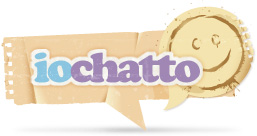Con il presente documento, ai sensi degli artt. 13 e 122 del D. Lgs. 196/2003 (“codice privacy”), nonché in base a quanto previsto dal Provvedimento generale del Garante privacy dell’8 maggio 2014, ISayBlog titolare del trattamento, fornisce gli utenti del sito alcune informazioni relative ai cookie utilizzati.
Cosa sono
Un “cookie” è un piccolo file di testo creato sul computer dell’utente nel momento in cui questo accede ad un determinato sito, con lo scopo di immagazzinare informazioni sulla visita, come la lingua preferita e altre impostazioni. Ciò può facilitare la visita successiva e aumentare l’utilità del sito. Per questo motivo i cookie svolgono un ruolo importante.
I cookie sono inviati al browser dell’utente (Internet Explorer, Mozilla Firefox, Google Chrome, ecc.) dal sito web visitato, in particolare dal server web (ovvero il computer sul quale è in esecuzione il sito web). Nel corso della navigazione l’utente potrebbe ricevere anche cookie di siti diversi (di “terze parti”), impostati direttamente da gestori di detti siti web e utilizzati per le finalità e secondo le modalità da questi definiti.
Tipologie di cookie utilizzati in questo sito web
Cookie del Titolare
Il sito utilizza solo cookie tecnici, rispetto ai quali, ai sensi dell’art. 122 del codice privacy e del Provvedimento del Garante dell’8 maggio 2014, non è richiesto alcun consenso da parte dell’interessato. Più precisamente il sito utilizza:
– cookie tecnici strettamente necessari per consentire la navigazione da parte dell’utente, di seguito indicati nel dettaglio
In assenza di tali cookie, il sito web non potrebbe funzionare correttamente.
– cookie tecnici che agevolano la navigazione dell’utente, di seguito indicati nel dettaglio
Cookie di terze parti
Attraverso il sito https://www.politicalive.com/ sono installati alcuni cookie di terze parti, anche profilanti, che si attivano cliccando “ok” sul banner.
Si riportano nel dettaglio i singoli cookie di terze parti, nonché i link attraverso i quali l’utente può ricevere maggiori informazioni e richiedere la disattivazione dei cookie.
Nielsen: https://priv-policy.imrworldwide.com/priv/browser/it/it/optout.htm
Triboo: https://cookie-siti-in-concessione.triboomedia.it/
Google Analytics
Il Sito utilizza Google Analytics. Si tratta di un servizio di analisi web fornito da Google Inc. (“Google”) che utilizza dei cookie che vengono depositati sul computer dell’utente per consentire analisi statistiche in forma aggregata in ordine all’utilizzo del sito web visitato.
I Dati generati da Google Analytics sono conservati da Google così come indicato nella Informativa reperibile al seguente link: https://developers.google.com/analytics/devguides/collection/analyticsjs/cookie-usage
Per consultare l’informativa privacy della società Google Inc., titolare autonomo del trattamento dei dati relativi al servizio Google Analytics, si rinvia al sito internet http://www.google.com/intl/en/analytics/privacyoverview.html
Al seguente link https://tools.google.com/dlpage/gaoptout è inoltre reso disponibile da Google il componente aggiuntivo del browser per la disattivazione di Google Analytics.
Monitoraggio conversioni di Google AdWords (Google Inc.)
E’ un servizio di statistiche fornito da Google Inc. che collega le azioni compiute dagli utenti di questo sito ai dati provenienti dal network di annunci Google AdWords.
Dati personali raccolti: cookie e dati di utilizzo.
Per maggiori informazioni: Privacy Policy
Pubblicità
Questi servizi consentono di utilizzare i dati dell’utente per finalità di comunicazione commerciale in diverse forme pubblicitarie, quali il banner, anche in relazione agli interessi dell’utente e potrebbero utilizzare Cookie per identificare l’utente al fine di visualizzare annunci pubblicitari personalizzati in base agli interessi e al comportamento dell’utente stesso, rilevati anche al di fuori di questo sito.
Per avere maggiori informazioni in merito, ti suggeriamo di verificare le informative privacy dei rispettivi servizi.
Social Buttons
I Social buttons sono quei particolari “pulsanti” presenti sul sito che raffigurano le icone di social network (esempio, Facebook e Twitter) e consentono agli utenti che stanno navigando di interagire con un “click” direttamente con i social network.
I social buttons utilizzati dal sito nella pagina “Contatti” e nel footer della pagina, nell’area dedicata alla pubblicazione dei dati societari, sono dei link che rinviano agli account del Titolare sui social network raffigurati. Tramite l’utilizzo di tali pulsanti non sono pertanto installati cookie di terze parti.
I social buttons utilizzati invece nella pagina “Blog” consentono al social network cui l’icona si riferisce di acquisisce i dati relativi alla visita. Tramite l’utilizzo di tali pulsanti sono pertanto installati cookie di terze parti, anche profilanti. Il sito non condivide però alcuna informazione di navigazione o dato dell’utente acquisiti attraverso il proprio sito con i social network accessibili grazie ai Social buttons.
Si riportano i link ove l’utente può prendere visione dell’informativa privacy relativa alla gestione dei dati da parte dei Social cui i pulsanti rinviano:
https://support.twitter.com/articles/20170519-uso-dei-cookie-e-di-altre-tecnologie-simili-da-parte-di-twitter
https://www.facebook.com/help/cookies
https://www.linkedin.com/legal/cookie_policy
Modalità del trattamento
Il trattamento viene effettuato con strumenti automatizzati dal Titolare. Non viene effettuata alcuna diffusione o comunicazione.
Conferimento dei dati
Fatta eccezione per i cookie tecnici, il conferimento dei dati è rimesso alla volontà dell’interessato che decida di navigare sul sito dopo aver preso visione dell’informativa breve contenuta nell’apposito banner e/o di usufruire dei servizi che richiedano l’installazione di cookie (così per la condivisione dei contenuti tramite Add This).
L’interessato può evitare l’installazione dei cookie mantenendo il banner (Astenendosi dal chiuderlo cliccando sul tasto “OK”) nonché attraverso apposite funzioni disponibili sul proprio browser.
Disabilitazione dei cookie
Fermo restando quanto sopra indicato in ordine ai cookie strettamente necessari alla navigazione, l’utente può eliminare gli altri cookie attraverso la funzionalità a tal fine messa a disposizione dal Titolare tramite la presente informativa oppure direttamente tramite il proprio browser.
Ciascun browser presenta procedure diverse per la gestione delle impostazioni. L’utente può ottenere istruzioni specifiche attraverso i link sottostanti.
Microsoft Windows Explorer
Google Chrome
Mozilla Firefox
Apple Safari
La disattivazione dei cookie di terze parti è inoltre possibile attraverso le modalità rese disponibili direttamente dalla società terza titolare per detto trattamento, come indicato ai link riportati nel paragrafo “cookie di terze parti”.
Per avere informazioni sui cookie archiviati sul proprio terminale e disattivarli singolarmente si rinvia al link: http://www.youronlinechoices.com/it/le-tue-scelte
Diritti dell’interessato
Art. 7 D. Lgs. 196/2003
1. L’interessato ha diritto di ottenere la conferma dell’esistenza o meno di dati personali che lo riguardano, anche se non ancora registrati, e la loro comunicazione in forma intelligibile.
2. L’interessato ha diritto di ottenere l’indicazione:
a) dell’origine dei dati personali;
b) delle finalità e modalità del trattamento;
c) della logica applicata in caso di trattamento effettuato con l’ausilio di strumenti elettronici;
d) degli estremi identificativi del titolare, dei responsabili e del rappresentante designato ai sensi dell’articolo 5, comma 2;
e) dei soggetti o delle categorie di soggetti ai quali i dati personali possono essere comunicati o che possono venirne a conoscenza in qualità di rappresentante designato nel territorio dello Stato, di responsabili o incaricati.
3. L’interessato ha diritto di ottenere:
a) l’aggiornamento, la rettificazione ovvero, quando vi ha interesse, l’integrazione dei dati;
b) la cancellazione, la trasformazione in forma anonima o il blocco dei dati trattati in violazione di legge, compresi quelli di cui non è necessaria la conservazione in relazione agli scopi per i quali i dati sono stati raccolti o successivamente trattati;
c) l’attestazione che le operazioni di cui alle lettere a) e b) sono state portate a conoscenza, anche per quanto riguarda il loro contenuto, di coloro ai quali i dati sono stati comunicati o diffusi, eccettuato il caso in cui tale adempimento si rivela impossibile o comporta un impiego di mezzi manifestamente sproporzionato rispetto al diritto tutelato.
4. L’interessato ha diritto di opporsi, in tutto o in parte:
a) per motivi legittimi al trattamento dei dati personali che lo riguardano, ancorché pertinenti allo scopo della raccolta;
b) al trattamento dei dati personali che lo riguardano a fini di invio di materiale pubblicitario o di vendita diretta o per il compimento di ricerche di mercato o di comunicazione commerciale.
Titolare
Il titolare del trattamento è ISayBlog
 La condivisione di dati su Facebook inizia a sorpassare i confini dell’immaginabile. Secondo uno studio effettuato dalla ricercatrice Katherine Chretien, sul social network più conosciuto del mondo circolano dati sensibili di pazienti ricoverati presso ospedali e centri clinici. Il fenomeno è diffuso soprattutto in America, dove giovani dottori ancora praticanti si scambiano foto, esiti e commenti.
La condivisione di dati su Facebook inizia a sorpassare i confini dell’immaginabile. Secondo uno studio effettuato dalla ricercatrice Katherine Chretien, sul social network più conosciuto del mondo circolano dati sensibili di pazienti ricoverati presso ospedali e centri clinici. Il fenomeno è diffuso soprattutto in America, dove giovani dottori ancora praticanti si scambiano foto, esiti e commenti.

game1kb.com
Hongzhi 황제는 잠시 멈췄습니다. “Xisshan의 백호를 관할하고 Xishan의 농업 문제를 전문으로합니다.”
sandyterrace.com
그래야만 유럽 전체가 혼돈과 혼란에 빠지지 않을 것이기 때문입니다.
I’m not sure where you are getting your info, but good topic. I needs to spend some time learning more or understanding more. Thanks for fantastic information I was looking for this information for my mission.
sandyterrace.com
튤립을 사려는 귀족들도 나날이 늘어나기 시작했다.
etsyweddingteam.com
日々の生活で役立つ実用的な知識を得ることができ、非常に感謝しています。
buysteriodsonline.com
그들은 정직한 사람들이었고 너무 깊이 생각하지 않고 순종적으로 저택으로 돌아 왔습니다.
qiyezp.com
Wang Jinyuan은 “스승님은 정말 현명합니다. “라고 웃으며 웃었습니다.
PBN sites
We’ll establish a system of PBN sites!
Benefits of our private blog network:
We execute everything so Google DOES NOT understand THAT THIS IS A self-owned blog network!!!
1- We acquire domain names from distinct registrars
2- The leading site is hosted on a virtual private server (VPS is high-speed hosting)
3- Additional sites are on distinct hostings
4- We attribute a separate Google profile to each site with confirmation in Google Search Console.
5- We make websites on WordPress, we do not utilize plugins with the help of which Trojans penetrate and through which pages on your websites are created.
6- We never repeat templates and utilize only unique text and pictures
We do not work with website design; the client, if desired, can then edit the websites to suit his wishes
tvlore.com
Fang Jifan은 연못 옆에 쪼그리고 앉아 Xiong Er에게 손짓했습니다. “이리 오세요.”
qiyezp.com
뿐만 아니라 이 Batavia에서 Franji 사람들은 거래 지점을 설립했습니다.
animehangover.com
그들은 서로를 부르거나, 숨기려고 하거나, 장애물을 찾고 있습니다.
exprimegranada.com
読むたびに感心します。いつも有益な情報をありがとう。
lacolinaecuador.com
창고에는 Zhu Houzhao 외에도 Xiao Jingteng의 선배들이 있었습니다.
cougarsbkjersey.com
とても有益な情報で満載でした。大変役に立ちました。
Understanding COSC Validation and Its Importance in Watchmaking
COSC Certification and its Demanding Standards
COSC, or the Official Swiss Chronometer Testing Agency, is the authorized Swiss testing agency that attests to the precision and accuracy of timepieces. COSC certification is a symbol of excellent craftsmanship and dependability in chronometry. Not all watch brands seek COSC certification, such as Hublot, which instead adheres to its proprietary stringent standards with movements like the UNICO, achieving equivalent precision.
The Science of Exact Timekeeping
The core system of a mechanical timepiece involves the spring, which supplies power as it loosens. This mechanism, however, can be susceptible to external elements that may affect its accuracy. COSC-certified mechanisms undergo strict testing—over 15 days in various conditions (5 positions, three temperatures)—to ensure their resilience and reliability. The tests assess:
Average daily rate accuracy between -4 and +6 seconds.
Mean variation, peak variation levels, and impacts of thermal variations.
Why COSC Accreditation Matters
For watch enthusiasts and collectors, a COSC-validated watch isn’t just a item of technology but a testament to enduring excellence and precision. It signifies a timepiece that:
Provides outstanding reliability and accuracy.
Provides guarantee of superiority across the whole design of the watch.
Is probable to retain its value more effectively, making it a wise choice.
Popular Timepiece Brands
Several well-known brands prioritize COSC accreditation for their timepieces, including Rolex, Omega, Breitling, and Longines, among others. Longines, for instance, provides collections like the Record and Spirit, which feature COSC-validated movements equipped with cutting-edge substances like silicon balance suspensions to improve durability and performance.
Historical Context and the Development of Timepieces
The notion of the timepiece dates back to the need for exact timekeeping for navigation at sea, highlighted by John Harrison’s work in the eighteenth cent. Since the official establishment of COSC in 1973, the certification has become a benchmark for assessing the precision of luxury timepieces, continuing a tradition of excellence in watchmaking.
Conclusion
Owning a COSC-certified timepiece is more than an visual choice; it’s a commitment to excellence and precision. For those valuing accuracy above all, the COSC validation provides peace of mind, guaranteeing that each certified watch will function reliably under various conditions. Whether for personal contentment or as an investment, COSC-accredited watches distinguish themselves in the world of watchmaking, maintaining on a legacy of precise timekeeping.
網上賭場